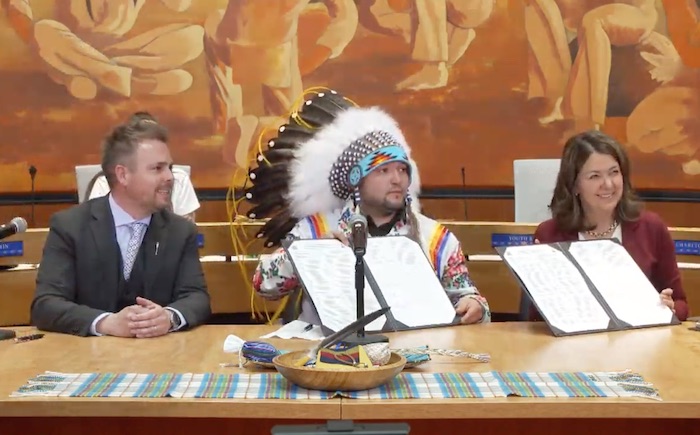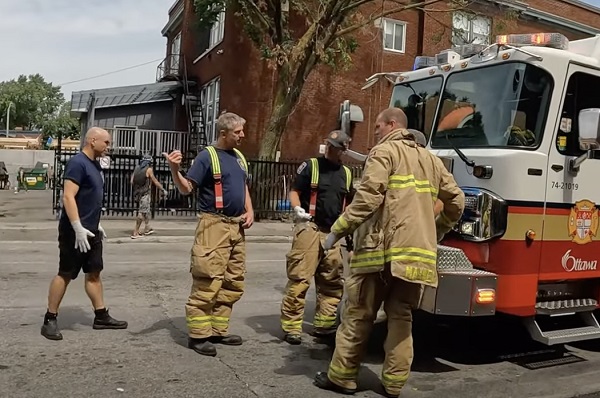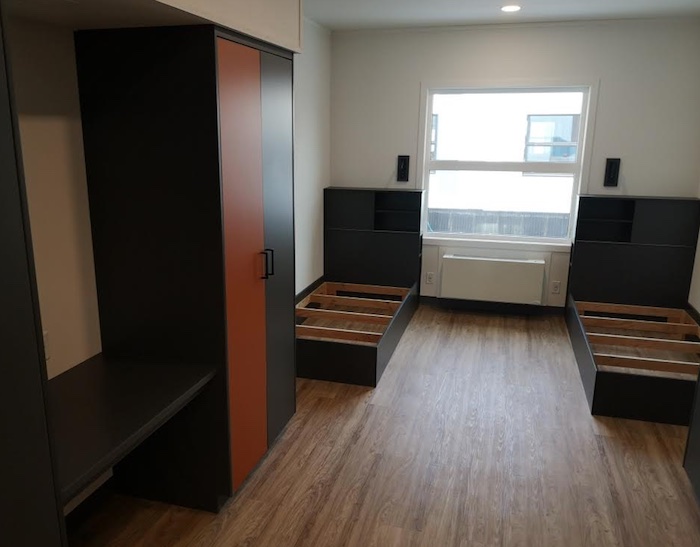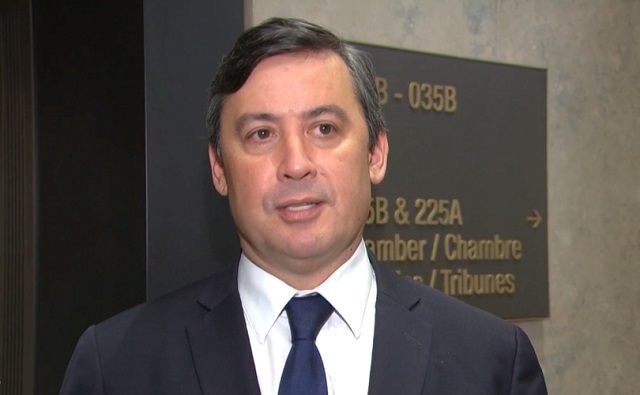Addictions
Province to open $30 million recovery centre on the Enoch Cree Nation

Building a recovery community with Enoch Cree Nation
A new recovery community on Enoch Cree Nation will help support people struggling with addiction in the Edmonton area.
Alberta’s government has signed a memorandum of understanding with Enoch Cree Nation for the development of a new recovery community on the First Nation. With an investment of up to $30 million in capital, the new 75-bed facility will provide holistic addiction treatment services for up to 300 people in the Edmonton area every year.
“This agreement with Enoch Cree Nation paves the way for a new recovery community to be built on Enoch lands, driven by the community it serves. This partnership reflects our government’s commitment to working with Indigenous communities to increase access to land-based and trauma-informed addiction treatment services that meet needs of everyone in Alberta.”
“We’re proud to partner with Enoch Cree Nation on a recovery community that will welcome Indigenous people and Albertans from the Edmonton area, supporting some of the communities most impacted by the addiction crisis. Everyone struggling with addiction deserves the opportunity to pursue recovery, and this new facility will give more people that chance.”
Working closely with Indigenous leaders is vital to removing barriers to comprehensive, culturally appropriate services in Indigenous communities and an important part of strengthening recovery-oriented systems of care across the province.
“Everyone pursuing recovery deserves our support. We are making that possible by offering important care while strengthening the ties between Indigenous culture and community. Thank you to Enoch Cree Nation and our partners for working with us on this project.”
“With this new treatment facility, we have the opportunity to turn things around and reunite our spirit. Not only would this facility help those who are struggling with addiction or mental health issues, it would benefit our entire Nation.”
The construction of a recovery community on Enoch Cree Nation stems from the work of the Edmonton Public Safety and Community Response Task Force. The Edmonton and Calgary Public Safety and Community Response Task Forces are responsible for implementing $187 million in provincial funding to further build out a recovery-oriented system of addiction and mental health care. The initiatives being implemented are part of a fair, firm and compassionate approach to keeping communities safe while treating addiction and mental health as health care issues.
“Partnering with Enoch Cree Nation is an important step forward in ensuring that everyone can access the right care to support their recovery from addiction. The Enoch recovery community will not only increase the number of addiction treatment beds in the Edmonton region, it will be the start of a new path – and a new life – for hundreds of people every year.”
“I’m very pleased that our government is making this important investment in addiction treatment. This new treatment facility will provide the supports needed for anyone seeking recovery from addiction. Together, with the people of Enoch, we can improve the lives of so many.”
Alberta’s government has also committed $75 million in capital funding for the construction of three new recovery communities to be located in Grande Prairie, and the Central Zone and North Zone. Each recovery community will establish up to 75 new long-term residential treatment beds, which will each help up to 300 people every year. This brings the total number of recovery communities planned or underway in Alberta to nine.
Budget 2023 secures Alberta’s future by transforming the health care system to meet people’s needs, supporting Albertans with the high cost of living, keeping our communities safe and driving the economy with more jobs, quality education and continued diversification.
Quick facts
- Recovery communities are a form of long-term residential treatment for substance use disorders used in more than 65 countries around the world.
- Treatment at publicly funded recovery communities is free for all Albertans.
- Budget 2023 provides up to $30 million in capital funding for the construction of a recovery community in the Edmonton area.
- Construction of the Enoch recovery community is expected to begin in early 2024.
- Enoch Cree Nation is the second First Nation in Alberta to partner with Alberta’s government to build a recovery community. Blood Tribe First Nation was the first.
- A total of nine recovery communities are planned or underway in Alberta: Red Deer, Lethbridge, Gunn, Blood Tribe, Enoch, Calgary, Grande Prairie, Central Zone and North Zone.
- Albertans struggling with opioid addiction can contact the Virtual Opioid Dependency Program (VODP) by calling 1-844-383-7688, seven days a week, from 8 a.m. to 8 p.m. daily. VODP provides same-day access to addiction medicine specialists. There is no wait list.
Addictions
Liberal MP blasts Trudeau-backed ‘safe supply’ drug programs, linking them to ‘chaos’ in cities

First responders in Ottawa dealing with a crisis Fridayman 0102 / YouTube
From LifeSiteNews
‘There is certainly the perception by a lot of Canadians that a lot of downtown cores are basically out of control,’ Liberal MP Dr. Marcus Powlowski said, before pointing specifically to ‘safe supply’ drugs and injection sites.
A Liberal MP has seemingly taken issue with “safe supply” drug policies for increasing public disorder in Canada, policies his own party, under the leadership of Prime Minister Justin Trudeau, has endorsed.
During an April 15 health committee meeting in the House of Commons, Liberal MP Dr. Marcus Powlowski, while pressing the Royal Canadian Mounted Police (RCMP), stated that “safe supply” drug policies have caused Canadians to feel unsafe in downtown Ottawa and in other major cities across the country.
“There is certainly the perception by a lot of Canadians that a lot of downtown cores are basically out of control,” Powlowski said.
“Certainly there is also the perception that around places like safe supply, safe injection sites, that things are worse, that there are people openly stoned in the street,” he continued.
“People are getting cardio-pulmonary resuscitation performed on them in the street. There are needles around on the street. There is excrement on the street,” Powlowski added.
“Safe supply“ is the term used to refer to government-prescribed drugs that are given to addicts under the assumption that a more controlled batch of narcotics reduces the risk of overdose – critics of the policy argue that giving addicts drugs only enables their behavior, puts the public at risk, disincentivizes recovery from addiction and has not reduced, and sometimes even increased, overdose deaths where implemented.
Powlowski, who has worked as an emergency room physician, also stated that violence from drug users has become a problem in Ottawa, especially in areas near so-called “safe supply” drug sites which operate within blocks of Parliament Hill.
“A few months ago I was downtown in a bar here in Ottawa, not that I do that very often, but a couple of colleagues I met up with, one was assaulted as he was going to the bar, another one was threatened,” said Powlowski.
“Within a month of that I was returning down Wellington Street from downtown, the Rideau Centre, and my son who is 15 was coming after me,” he continued. “It was nighttime and there was someone out in the middle of the street, yelling and screaming, accosting cars.”
Liberal MP Dr. Brendan Hanley, the Yukon’s former chief medical officer, testified in support of Powlowski, saying, “My colleague Dr. Powlowski described what it’s like to walk around downtown Ottawa here, and certainly when I walk home every day, I encounter similar circumstances.”
“Do you agree this is a problem?” Powlowski pressed RCMP deputy commissioner Dwayne McDonald. “Do you agree for a lot of Canadians who are not involved with drugs, that they are increasingly unhappy with society in downtown cores which are this way? Do you want to do more about this, and if you do want to do more about this, what do you need?”
McDonald acknowledged the issue but failed to offer a solution, responding, “One of the success factors required for decriminalization is public support.”
“I think when you are faced with situations where, as we have experienced in our communities and we hear from our communities, where public consumption in some places may lead to other members of the public feeling at risk or threatened or vulnerable to street level crime, it does present a challenge,” he continued.
Deaths from drug overdoses in Canada have gone through the roof in recent years, particularly in British Columbia after Trudeau’s federal government effectively decriminalized hard drugs in the province.
Under the policy, which launched in early 2023, the federal government began allowing people within the province to possess up to 2.5 grams of hard drugs without criminal penalty, but selling drugs remained a crime.
The policy has been widely criticized, especially after it was found that the province broke three different drug-related overdose records in the first month the new law was in effect.
The effects of decriminalizing hard drugs in various parts of Canada has been exposed in Aaron Gunn’s recent documentary, Canada is Dying, and in U.K. Telegraph journalist Steven Edginton’s mini-documentary, Canada’s Woke Nightmare: A Warning to the West.
Gunn says he documents the “general societal chaos and explosion of drug use in every major Canadian city.”
“Overdose deaths are up 1,000 percent in the last 10 years,” he said in his film, adding that “[e]very day in Vancouver four people are randomly attacked.”
Addictions
Ontario and Saskatchewan join Alberta’s approach to opioid recovery

The governments of Alberta, Ontario and Saskatchewan are establishing a partnership to build systems of care focused on recovery.
On April 3 and 4, 2024, the eighth annual Recovery Capital Conference of Canada in Calgary welcomed nearly 2,000 delegates from Alberta, across Canada and around the world. A major focus of the conference was the Alberta Recovery Model—the system of care that Alberta’s government is building to provide treatment and recovery support for people living with mental health and addiction challenges.
Ministers responsible for mental health and addiction in Alberta, Ontario and Saskatchewan have agreed to collaborate on building systems of care that focus on recovery. This highlights the importance of breaking down barriers and increasing access to recovery-oriented care, sharing best practices, advancing partnerships with Indigenous communities, and advocating to the federal government for investment and policies that support recovery.
“We are eager to share the Alberta Recovery Model because we believe it is the most dignified, comprehensive and compassionate approach in any jurisdiction across Canada to help people overcome their mental health challenges and recover from the deadly disease of addiction. I look forward to seeing what this partnership brings as we work together with other provinces on building a system of care that focuses on recovery.”
“Saskatchewan is focused on helping people overcome addictions and live healthy, safe lives in recovery. Under our Action Plan for Mental Health and Addictions, we are doubling capacity to make addictions treatment more available and accessible, and transitioning to a Recovery-Oriented System of Care to better care for patients. By helping people overcome addictions, we can save lives, heal families and strengthen our communities.”
“Through our Roadmap to Wellness, Ontario is making unprecedented investments to ensure that those in our province struggling with mental health or addictions challenges get the care they need, when and where they need it. I look forward to working in closer collaboration with my colleagues from Alberta and Saskatchewan to build systems of care that prioritize recovery and help more people break free from addiction.”
This partnership is a step forward in working with and learning from other provinces on policies that bring meaningful and lasting change to those suffering from the deadly disease of addiction, or who are facing mental health challenges.
-

 COVID-1917 hours ago
COVID-1917 hours agoCDC Quietly Admits to Covid Policy Failures
-

 Brownstone Institute8 hours ago
Brownstone Institute8 hours agoDeborah Birx Gets Her Close-Up
-

 COVID-1920 hours ago
COVID-1920 hours agoJapanese study shows disturbing increase in cancer related deaths during the Covid pandemic
-

 Great Reset15 hours ago
Great Reset15 hours agoClimate expert warns against extreme ‘weather porn’ from alarmists pushing ‘draconian’ policies
-

 espionage23 mins ago
espionage23 mins agoConservative MP testifies that foreign agents could effectively elect Canada’s prime minister, premiers
-

 Economy2 days ago
Economy2 days agoExtreme Weather and Climate Change
-

 Bruce Dowbiggin2 days ago
Bruce Dowbiggin2 days agoWhy Are Canadian Mayors So Far Left And Out Of Touch?
-

 International2 days ago
International2 days agoTelegram founder tells Tucker Carlson that US intel agents tried to spy on user messages

